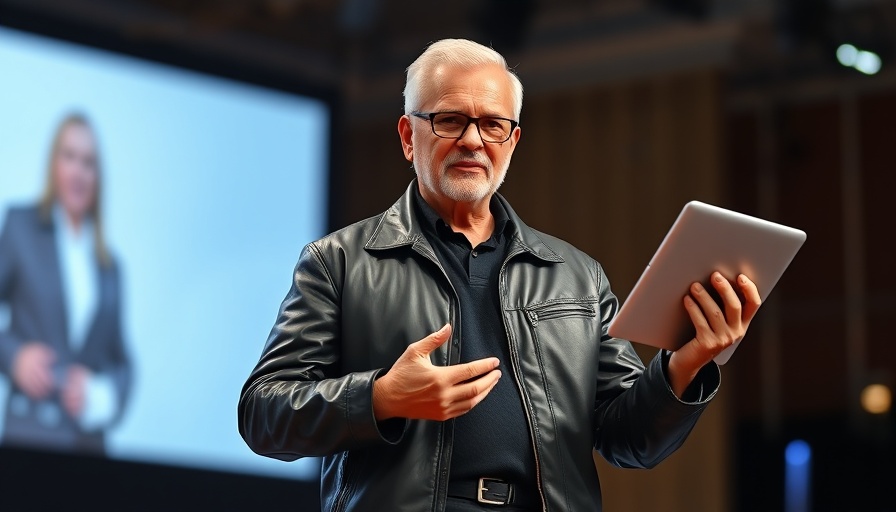
Nvidia's Sizzling GTC 2025: A Clash of Confidence and Challenges
In 2025, Nvidia’s annual GTC (GPU Technology Conference) definitely scored record numbers, with around 25,000 eager attendees filling the San Jose Convention Center. The atmosphere teemed with enthusiasm as workshops and panels overflowed, leaving many participants scrambling for space. From the streets to the session halls, it was palpable: the tech giant was on a mission to solidify its dominance in the AI sector, and CEO Jensen Huang left no stone unturned to amplify that aura.
A Promising Performance Amidst Worrying Trends
Nvidia currently boasts impressive financial metrics—record revenues and profit margins that shine brighter than ever—but underlying challenges lurk just beneath the surface. While Huang confidently showcased new chip designs and future technology launches, he addressed potential investors still anxious after Nvidia's recent stock tumble. “The more you buy, the more you save,” he asserted, attempting to rekindle hope in a market riddled with uncertainty.
The DeepSeek Disruption: Are Chip Sales Under Threat?
Nvidia's strategy seems to hinge on the notion that traditional AI tools remain crucial. Huang emphasized that the rise of DeepSeek, a Chinese AI lab releasing the innovative “reasoning” model R1, doesn’t signal the retirement of Nvidia’s advanced chips. Despite rising competition, he touted the new Vera Rubin GPUs, promising results that could double the performance of the Blackwell chips. Yet skepticism remains: could rapidly-advancing low-cost alternatives diminish Nvidia’s market share?
Tech Giants Breaking the Chains of Dependency
As companies like OpenAI and Meta gear up to lessen their reliance on Nvidia chips, the stakes are raised. Every major cloud offering, including AWS's Graviton and Google’s TPUs, is now developing custom silicon, hinting at a shift in power dynamics within the tech industry. The hype surrounding Nvidia’s groundbreaking innovations meets conflicting developments as traditional partners veer towards in-house hardware. The implication for Nvidia might be substantial, causing rapid changes in the competitive landscape.
Addressing Tariff Concerns: An Uncertain Future?
Another factor adding to the mountainous challenges is the looming issue of tariffs. While Huang dismissed immediate threats from U.S. tariffs on Taiwan chips, he indicated a more cautious outlook regarding long-term effects. This marks a significant stance, especially in light of the Trump Administration’s persistent call for an “America First” strategy, pushing Nvidia to explore domestic manufacturing options.
Investors React: A Mixed Bag of Sentiments
In a surprising twist, Nvidia’s share price dipped about 4% following Huang’s assertive keynote. Hope for unexpected announcements or accelerated product launches seemed dashed, leaving investors apprehensive about the company’s long-term roadmap. As they navigate uncertainty, their faith in the tech giant faces challenges from both within and external factors threatening its preeminence.
The AI industry is moving faster than ever; it’s a battle of resilience and innovation. Understanding these developments can position you ahead of the curve, whether you are a tech enthusiast or an industry watcher. As we await Nvidia’s next move, it's critical to stay informed about these shifts that could redefine technology landscapes.
For the latest updates in tech industry news, make sure to follow reputable tech news sites to stay engaged and informed.
 Add Row
Add Row  Add
Add 



Write A Comment